Related Research Articles

Mendel University in Brno is located in Brno, Czech Republic. It was founded on 24 July 1919 on the basis of the former Tábor Academy. It now consists of five faculties and one institute - the Faculty of AgriSciences, Faculty of Forestry and Wood Technology, Faculty of Business and Economics, Faculty of Horticulture, Faculty of Regional Development and International Studies and Institute of Lifelong Education. It is named since 1994 after Gregor Johann Mendel, the botanist and "father of genetics", who was active in this city during his lifetime.

Forestry is the science and craft of creating, managing, planting, using, conserving and repairing forests and woodlands for associated resources for human and environmental benefits. Forestry is practiced in plantations and natural stands. The science of forestry has elements that belong to the biological, physical, social, political and managerial sciences. Forest management plays an essential role in the creation and modification of habitats and affects ecosystem services provisioning.

The Forest Stewardship Council GmbH (FSC) is an international non-profit, multistakeholder organization established in 1993 that promotes responsible management of the world's forests via timber certification. This organization uses a market-based approach to transnational environmental policy.
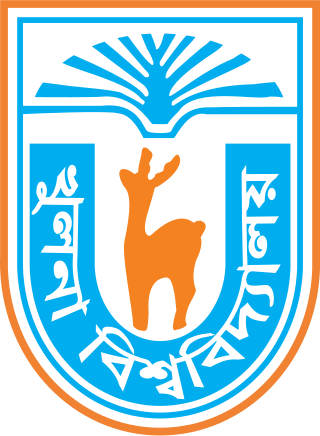
Khulna University is a public research university at Gollamari in Khulna, Bangladesh. It was established in 1991.

The Institute of Technology of Cambodia, known for short as Sala Techno, is a higher education institution in Phnom Penh, Cambodia that trains students in science, technology and engineering. Enrollment is approximately 3,500 undergraduate students and 200 graduate students.
Ecoforestry has been defined as selection forestry or restoration forestry. The main idea of ecoforestry is to maintain or restore the forest to standards where the forest may still be harvested for products on a sustainable basis. Ecoforestry is forestry that emphasizes holistic practices which strive to protect and restore ecosystems rather than maximize economic productivity. Sustainability of the forest also comes with uncertainties. There are other factors that may affect the forest furthermore than that of the harvesting. There are internal conditions such as effects of soil compaction, tree damage, disease, fire, and blow down that also directly affect the ecosystem. These factors have to be taken into account when determining the sustainability of a forest. If these factors are added to the harvesting and production that comes out of the forest, then the forest will become less likely to survive, and will then become less sustainable.
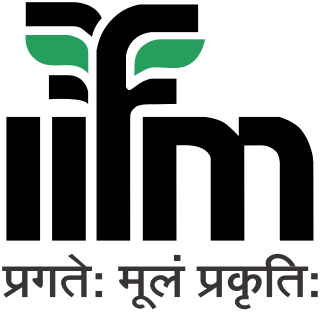
The Indian Institute of Forest Management (IIFM), founded 1982, is an autonomous, Natural Resource Service training institute of Forestry located in Bhopal, Madhya Pradesh, India, established by the MoEFCC, Government of India with financial assistance from the SIDA and course assistance from the IIM Ahmedabad for mid career training of IFS cadre and all State Forest Service cadre in India. The institute's objective is to fulfill the growing need for the managerial human resource in the area of Forest, Environment, and Natural resources Management and allied sectors. The institute is headed by a director selected and appointed by the Ministry of Environment, Forest and Climate Change, Government of India.

The International Union of Forest Research Organizations (IUFRO) is a non-profit, non-governmental international network of forest scientists, headquartered in Austria. In 2019, IUFRO counted 630 Member Organizations worldwide.
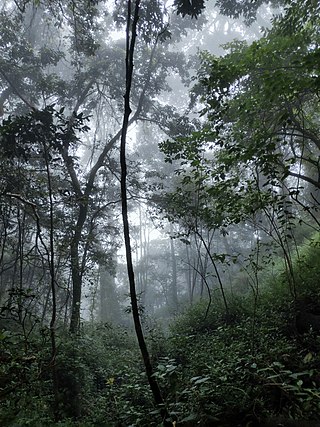
Forest management is a branch of forestry concerned with overall administrative, legal, economic, and social aspects, as well as scientific and technical aspects, such as silviculture, forest protection, and forest regulation. This includes management for timber, aesthetics, recreation, urban values, water, wildlife, inland and nearshore fisheries, wood products, plant genetic resources, and other forest resource values. Management objectives can be for conservation, utilisation, or a mixture of the two. Techniques include timber extraction, planting and replanting of different species, building and maintenance of roads and pathways through forests, and preventing fire.
The following outline is provided as an overview of and guide to forestry:

Forestry Tasmania trades as Sustainable Timber Tasmania but is still legally called Forestry Tasmania. It is a government business enterprise wholly owned by the Government of Tasmania, Australia. It is responsible for the management of public production forest in Tasmania, which is about 800,000 hectares of crown land that is classified as 'permanent timber production zone'.

Sokoine University of Agriculture (SUA) is a public university in Morogoro, Tanzania, specializing in agriculture. The university is named after the country's second prime minister Edward Sokoine.
The Swedish Defence Research Agency is a government agency in Sweden for total defence research and development.
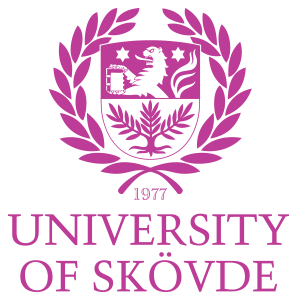
The University of Skövde is a state university in Skövde, Sweden. The University of Skövde was granted university status in 1983 and is now an academic institution with general and specialised educational programmes in topics like Business, Health, Biomedicine and Computer game design. Research, education, and PhD training at the university are divided on four schools; Bioscience, Business, Health and Education, Engineering Science, and Informatics. The university has approximately 9,000 students in 50 undergraduate and 10 graduate programmes.
The following outline is provided as an overview of and topical guide to production:
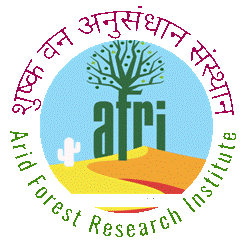
Arid Forest Research Institute (ICFRE-AFRI) is a research institute situated in Jodhpur, Rajasthan, India. The institute conducts scientific research in forestry in order to provide technologies to increase the vegetative cover and to conserve biodiversity in the hot arid and semi-arid regions of Rajasthan and Gujarat. It helps to provide data and information to prevent and mitigate water scarcity related problems which affect the environment and people. It operates under the Indian Council of Forestry Research and Education (ICFRE) of the Ministry of Environment, Forest and Climate Change, Government of India.

The Indian Institute of Spices Research (IISR) is an autonomous organisation engaged in agricultural research related to spices in India. The institute has its headquarters in Moozhikkal, Silver Hills, Kozhikode, Kerala and is a subsidiary of Indian Council of Agricultural Research (ICAR), New Delhi, under the Ministry of Agriculture, India.
The South African National Biodiversity Institute (SANBI) is an organisation tasked with research and dissemination of information on biodiversity, and legally mandated to contribute to the management of the country's biodiversity resources.

The Lilongwe University of Agriculture and Natural Resources (LUANAR) is a university outside Lilongwe, Malawi. It was formed in 2011 by a merger between Bunda College of Agriculture of the University of Malawi and Natural Resources College (NRC).
References
- ↑ "Applied Research and Innovation for Future Forestry. Skogforsk: Research and Innovation Strategy 2017-2020" (PDF).[ dead link ]
- ↑ "About us". Skogsforsk. Archived from the original on 13 September 2014. Retrieved 13 September 2014.
- ↑ "Om oss" (in Swedish). Skogsforsk. Archived from the original on 10 October 2014. Retrieved 13 September 2014.
- ↑ "STIFT SKOGSBRUKETS FORSKNINGSINSTITUT, SKOGFORSK" (in Swedish). Solid Info. Archived from the original on 24 September 2015. Retrieved 13 September 2014.